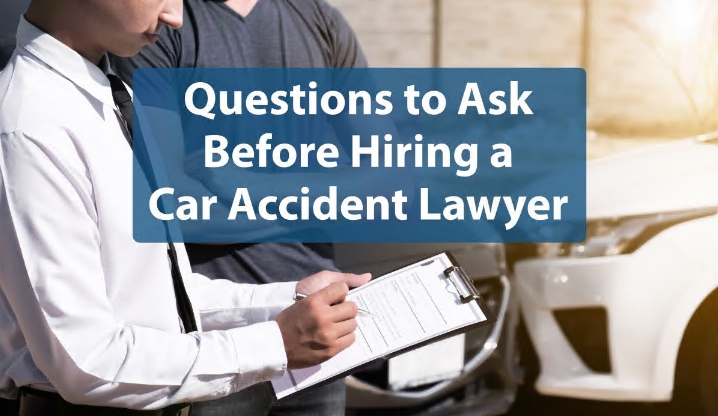Top Questions to Ask Before Hiring a Car Accident Lawyer
Vetting potential attorneys requires strategic questioning to uncover their true capabilities.

When it comes to the crucial task of vetting potential attorneys, it's imperative to adopt a strategic approach that involves asking insightful and probing questions. This process goes beyond mere surface-level inquiries; it requires a keen understanding of what truly matters in a legal representative. By posing strategic questions, you can delve deeper into an attorney's background, experience, and skill set, thereby uncovering their true capabilities. These essential questions serve as a litmus test, revealing critical information about their track record, their approach to problem-solving, their communication style, and their ability to navigate complex legal landscapes. Ultimately, asking the right questions empowers you to make an informed decision when selecting an attorney who will best serve your interests and needs.
These essential questions reveal critical information:
Case-Specific Questions
1."How many cases identical to mine have you handled this year?"
Follow-up: Ask for anonymized case examples with comparable injuries and liability scenarios.
2. "What's your strategy for overcoming the specific challenges in my case?"
Listen for detailed analysis of statutes of limitations, comparative negligence issues, or insurance policy limits.
Litigation Experience
3. "What percentage of your cases actually go to trial versus settle?"
Ideal range: 5-15% trial rate indicating both settlement skills and trial readiness.
4."When was your last auto accident jury trial? What was the outcome?"
Verify recent courtroom experience and results.
Fee Structure Details
5. "Does your contingency percentage change if the case progresses to different stages?"
Many contracts increase fees if filing a lawsuit (35%) or going to trial (40%).
6. "Which case expenses will I owe if we lose?"
Some firms require client reimbursement for costs regardless of outcome.
Operational Practices
7. "Who will handle day-to-day communications on my case?"
Beware firms where paralegals handle 90% of the work with minimal attorney oversight.
8."What's your average response time for client calls/emails?"
Require specific commitments (e.g., "24-hour response guarantee").
Case Evaluation
9. "What's the strongest and weakest aspect of my case?"
Qualified attorneys should identify both opportunities and risks immediately.
10. "How will you prove my non-visible injuries (like concussions or soft tissue damage)?"
Look for discussion of diagnostic tools, expert witnesses, and demonstrative evidence.
Red Flag Responses:
"All cases like yours settle for $X" (no case is guaranteed)
"We don't need to review your medical records yet" (premature evaluation)
"Sign today and we'll figure out details later" (high-pressure tactics)
Due Diligence Steps:
Verify state bar license status
Check for disciplinary actions
Review recent trial verdicts
Search for malpractice claims
Analyze online review patterns (beware fake testimonials)
We strongly recommend that you interview at least three lawyers before making your final selection. During these consultations, it's advisable to take detailed notes, which will enable you to objectively compare their responses later on. Pay close attention not only to the legal expertise they demonstrate but also to how well they listen and engage with your specific circumstances. Ultimately, trust your instincts—choose the professional who genuinely understands your unique situation and needs, and with whom you feel a sense of rapport and confidence.







